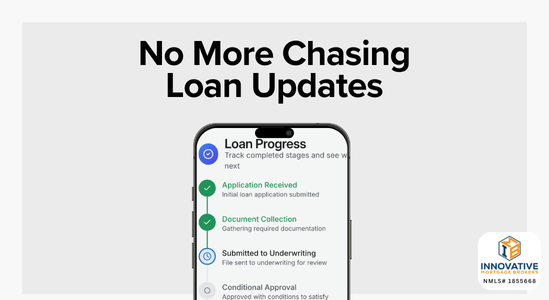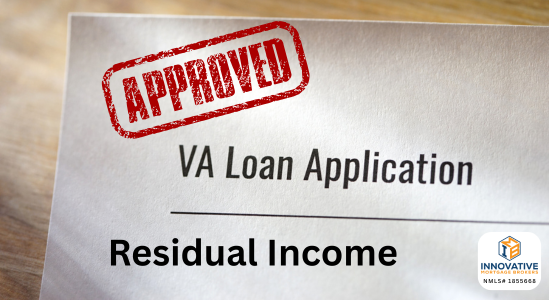Mortgage rate volatility, oil shocks, and why execution matters more than quotes When a war…
Why Mortgage Escrow Accounts Are Essential for Most Homeowners
From setup to monthly payments, here’s everything you need to know about mortgage escrow accounts.
When you’re going through the process of buying a home, you’ll likely encounter a mortgage escrow account. For many first-time buyers, this can sound confusing or unnecessary. However, an escrow account plays a crucial role in managing your financial responsibilities as a homeowner. Let’s break it down to help you understand how it works and why it’s an important part of the homeownership process.
What is a Mortgage Escrow Account?
A mortgage escrow account is a savings account managed by your mortgage lender or servicer. It is used to hold funds that will be applied toward your property taxes, homeowners insurance, and sometimes other bills like private mortgage insurance (PMI). When you make your monthly mortgage payment, part of that payment goes into the escrow account. The lender then uses the funds in the account to pay your taxes and insurance on your behalf when those bills come due.
In essence, it’s a way for your lender to make sure your property taxes and insurance are always paid on time, preventing you from missing important payments that could put your home at risk.
Why Do You Need an Escrow Account?
Most of the time, having an escrow account is optional for homeowners. However, many lenders will add pricing adjustments or fees to your mortgage rate if you choose to waive the escrow account. This is because, without an escrow, lenders have less control over ensuring that your property taxes and insurance are paid on time, which presents a risk for both parties.
Even if you’re not required to have one, an escrow account can be a helpful tool for managing large, irregular payments like property taxes and insurance. By spreading these expenses out over monthly payments, budgeting becomes more manageable, reducing the risk of unexpected financial strain down the road.
How Does an Escrow Account Work?
When you close on your mortgage, your lender will calculate your annual property taxes and insurance premiums. They will divide this amount by 12 and add that portion to your monthly mortgage payment. Here’s how it works in steps:
- Setup at Closing: When you close on your mortgage, the lender will usually require you to fund the escrow account with a few months’ worth of tax and insurance payments upfront (depending when the bill due dates are). This is called an escrow cushion and is meant to ensure that there are sufficient funds to cover upcoming payments.
- Monthly Payments: Each month, your mortgage payment will include:
- Principal and Interest: This is the actual mortgage loan payment.
- Escrow Payment: A portion of your payment goes into the escrow account to cover your taxes and insurance when due.
- Annual Review: At least once a year, your lender/servicer will review your escrow account to ensure the budgeted amounts and actual amounts are same. If property taxes or insurance premiums increase, your monthly escrow payment will also increase to ensure there’s enough money in the account to cover these higher bills. If taxes or insurance premiums decrease, your payment could go down, or you may receive a refund for the surplus.
- Paying the Bills: When your property taxes or insurance premiums are due, the lender uses the funds in the escrow account to pay these bills directly. This means you won’t have to worry about remembering due dates or paying these large bills in one lump sum.
However, it’s important to note that when you receive these bills, you should check in with your lender to ensure they have received a copy as well. This simple step can help avoid any delays in payment, ensuring your taxes and insurance premiums are paid on time and avoiding any potential late fees or lapses in coverage.
Benefits of a Mortgage Escrow Account
- Convenience: One of the main benefits of an escrow account is that it simplifies your financial obligations. You only need to make one mortgage payment each month, and your lender takes care of paying your property taxes and insurance when they’re due. This eliminates the hassle of managing these separate bills yourself.
- Predictable Budgeting: By spreading the cost of your property taxes and insurance into 12 equal monthly payments, you avoid having to come up with large sums of money for these expenses all at once. This makes it easier to budget and plan ahead.
- Peace of Mind: An escrow account ensures that important bills like property taxes and insurance are paid on time. Late or missed payments on these can lead to serious consequences, like penalties, interest, or even a lien being placed on your property. With an escrow account, you don’t have to worry about remembering to make these payments, reducing stress.
- Lender’s Assurance: From the lender’s perspective, an escrow account provides assurance that taxes and insurance are being paid. This protects their investment in the home, as unpaid taxes could lead to foreclosure, and without insurance, the property’s value could be at risk.
Downsides of an Escrow Account
While there are clear benefits to having an escrow account, there are also some potential downsides to consider.
- Pre-Paid Escrow at Closing: One often overlooked downside is that your escrow account needs to be pre-funded at closing. This means you’ll need to pay several months’ worth of property taxes and insurance upfront, slightly increasing your out-of-pocket expenses when you close on the home. While it’s an important safeguard, it can be a financial strain for some buyers.
- Higher Monthly Payment: Since your monthly mortgage payment includes escrow for taxes and insurance, it will be higher than if you were only paying the principal and interest. This can sometimes be a surprise for new homeowners.
- Annual Adjustments: If your property taxes or insurance premiums go up (and most of the time they do), so will your monthly escrow payment. This can result in higher-than-expected payments, which can affect your budget if you’re not prepared.
- No Interest on Escrow Funds: Typically, the money in your escrow account does not earn interest. While the funds are sitting there waiting to pay your taxes and insurance, they aren’t growing, which some homeowners might see as a missed financial opportunity.
- Over-payments or Shortfalls: If your lender miscalculates how much to collect for escrow, you might end up with a shortfall (meaning you owe more) or an over-payment (meaning you’ll get a refund). Either way, it can cause some financial inconvenience.
Can You Opt Out of an Escrow Account?
In many cases you may be able to opt out of an escrow account and pay your taxes and insurance directly. However, opting out means you’ll need to be more diligent about saving for these expenses and paying them on time.
For many people, the convenience and peace of mind that comes with an escrow account make it worth keeping. But if you feel confident managing your own bills and prefer to keep control of your payments, it could be an option.
How to Manage Your Escrow Account Effectively
Whether you’re required to have an escrow account or choose to have one for convenience, here are a few tips to manage it effectively:
- Keep an Eye on Escrow Statements: Every year, your lender will send you an escrow statement detailing how much was collected, how much was paid out, and whether there’s a surplus or shortfall. Review this carefully and ask questions if something doesn’t seem right.
- Plan for Adjustments: Property taxes and insurance premiums often change from year to year, which means your escrow payments will too. Plan ahead for potential increases so you’re not caught off guard by a higher mortgage payment.
- Review Your Annual Insurance Policy: Each year, take the time to review your homeowners insurance policy. It may be worth shopping around for better rates, as insurance premiums can fluctuate, and you could find savings by switching providers.
- Apply for Homestead Exemption: If you qualify, apply for a homestead exemption, which can reduce your property taxes and lower your monthly escrow payments. This can provide additional savings over time.
- Stay Informed: Even though your lender is managing your escrow payments, it’s still important to stay informed about your property taxes and insurance policies. Make sure you’re aware of due dates and amounts and confirm with your lender that everything is being paid on time.
About Us
At Innovative Mortgage Brokers, we pride ourselves on providing personalized mortgage solutions tailored to fit the unique needs of our clients. With over 15 years of experience in the industry, we understand that navigating the mortgage process can feel overwhelming, which is why our mission is to simplify it while offering expertise, service and low rates.
Whether you’re a first-time homebuyer, looking to refinance, investor, or need specialized financing options, we offer a wide range of mortgage products including conventional, FHA, VA, USDA, Jumbo mortgages, and Non-QM loans. Our commitment to transparency, competitive rates, and client-first approach sets us apart from the big banks. We strive to not just find you a loan, but the right loan that aligns with your financial goals.
Serving Pennsylvania (PA) and Florida (FL), we believe in making homeownership more accessible through innovative solutions and a deep understanding of local markets. When you work with us, you’re not just getting a mortgage broker, you’re getting a partner dedicated to your success.
Conclusion
A mortgage escrow account may seem like just another line item in the homebuying process, but it serves an important purpose. By helping you manage your property taxes and insurance, it provides convenience, peace of mind, and a way to budget more effectively. While there are some drawbacks, the benefits generally outweigh the downsides for most homeowners.
At Innovative Mortgage Brokers, we are here to help. If you have any questions or need assistance with your mortgage, don’t hesitate to reach out—we’re here to help!





